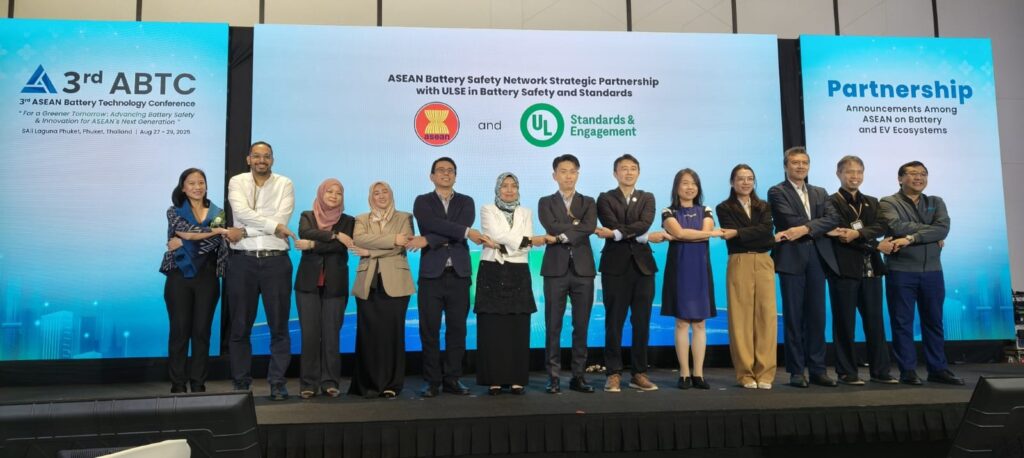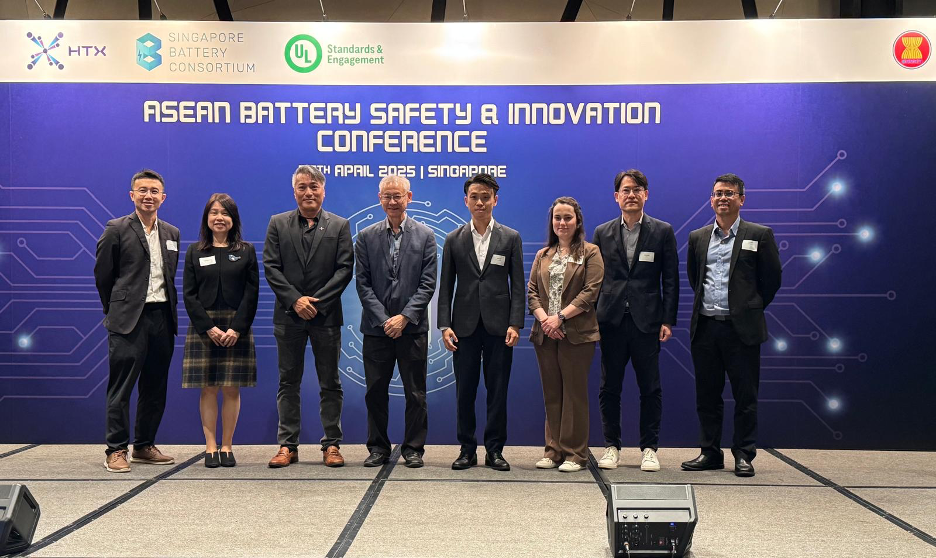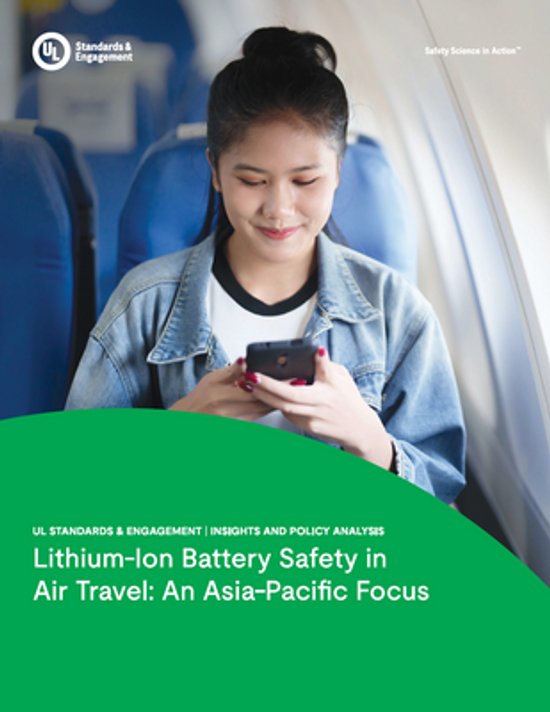
Around the world, countries are rapidly adopting rechargeable battery technology to advance clean energy goals and secure the grid for the future. While much of the world’s recent attention on battery safety has focused on the small-but-powerful lithium-ion batteries that power consumer devices like smartphones and laptops, there is a growing global focus on the potential of energy storage and distribution through large-scale battery energy storage systems (BESS) that can provide power for entire communities.
These systems often serve as an essential component of renewable energy efforts like wind and solar and can be critical backup power for the grid, but they also carry significant safety risks. To help deploy BESS systems more safely, UL Standards & Engagement is partnering with organizations to raise awareness, provide technical assistance on battery safety policies, and facilitate expert involvement in the development of ULSE standards.
In the latest example of international collaboration, ULSE was recently recognized as an official partner of the ASEAN Battery Safety Network — a new initiative under the ASEAN Committee on Science, Technology, and Innovation (COSTI). This strategic partnership was announced at the August 2025 ASEAN Battery Technology Conference, with ABSN recognizing ULSE’s leadership on battery safety:
“ULSE’s know-how and expertise, along with its strong network of experts both within and outside of their organization, will be of great benefit to ABSN in supporting the safe use and deployment of batteries in the region’s energy transition journey,” ABSN said.
Working Toward Safer Energy Storage on a Massive Scale
Unlike batteries in smartphones, the battery energy storage systems at the center of the ABSN’s attention are the size of cargo containers, often with several units working together to power a facility as large as a data center. Some could power a small town. These systems often store the energy generated by wind turbines and photovoltaic panels so that it can be distributed when needed. And as these technologies are rapidly adopted by ASEAN member countries, it is critical that safety standards evolve just as quickly.
The primary challenge with lithium-ion batteries is that they are subject to thermal runaway, a self-heating phenomenon that can result in emission of toxic gases, fire, or even explosion if the batteries are faulty or damaged. Even small lithium-ion batteries — like those in smartphones, e-cigarettes, power banks, or e-bikes — are capable of significant harm including severe burns, death, and property damage. With BESS systems, bigger batteries mean bigger risk, which is why safety standards are crucial for safer deployment.
Bigger Risks Make Safety Imperative
Through our extensive network of expert stakeholders and researchers with in-the-field experience, ULSE develops safety standards and resources that can help countries around the world deploy and operate these systems safely.
This firsthand experience includes in-depth research on what we’ve learned when things go wrong. Our colleagues at the Fire Safety Research Institute, for example, have performed an in-depth analysis of a 2019 BESS explosion in Arizona that “ballistically propelled” two firefighters into a chain-link fence and injured two others, causing traumatic brain injuries and multiple fractures as it spewed deadly hydrogen cyanide gas and carbon monoxide. This analysis has helped to inform the ongoing development of ULSE standards like UL 9540A, our Test Method for Battery Energy Storage Systems, which provides testing from the plant level down to individual cells to minimize the odds of a battery fire and limit damage from a failure.
Incident rates for BESS fires are relatively low, yet such incidents — like the 2019 explosion in Arizona, or the 2025 fire at the Moss Landing Power Plant in California — provide a sobering reminder of the need to incorporate safety standards into projects while they are on the drawing board, and to upgrade standards as new lessons are learned. Lithium-ion battery technologies are not going away — countries are continuing to deploy them around the world, and ULSE is ready to partner with them to help ensure they can be used safely.
Recently, I was privileged to serve as a member of the Singapore Civil Defense Force Working Group developing regulation for underground BESS systems. As a contributor to this important project, I helped regulators and facility owners make informed decisions as they selected BESS systems and designed mitigation strategies such as venting, detection, and sprinklers. Through these conversations, Singapore updated its fire code to reference UL 9540A in its requirements for underground BESS.
This standard has been adopted in the U.S. and Canada and can help keep these systems safe worldwide if adopted elsewhere. In addition to Singapore, the Philippines has also adopted it as a national standard in our region.
Advancing Safety Globally Through Partnership
ULSE appreciates that ABSN normally deals government-to-government and, as a safety nonprofit, is honored to have such a prominent seat at its table. ABSN aims to foster a deeper understanding of battery safety science, technology, and innovation in the region, and ULSE looks forward to supporting these efforts through the sharing of best practices, safety standards, and collaboration on joint research and innovation. The dialogue — not a one-way conversation about ULSE standards — will deploy knowledge and yield technical insight no one country or organization could gain on its own, leading to the safe and sustainable deployment of battery technologies across ASEAN, and a safer energy future wherever you live.


